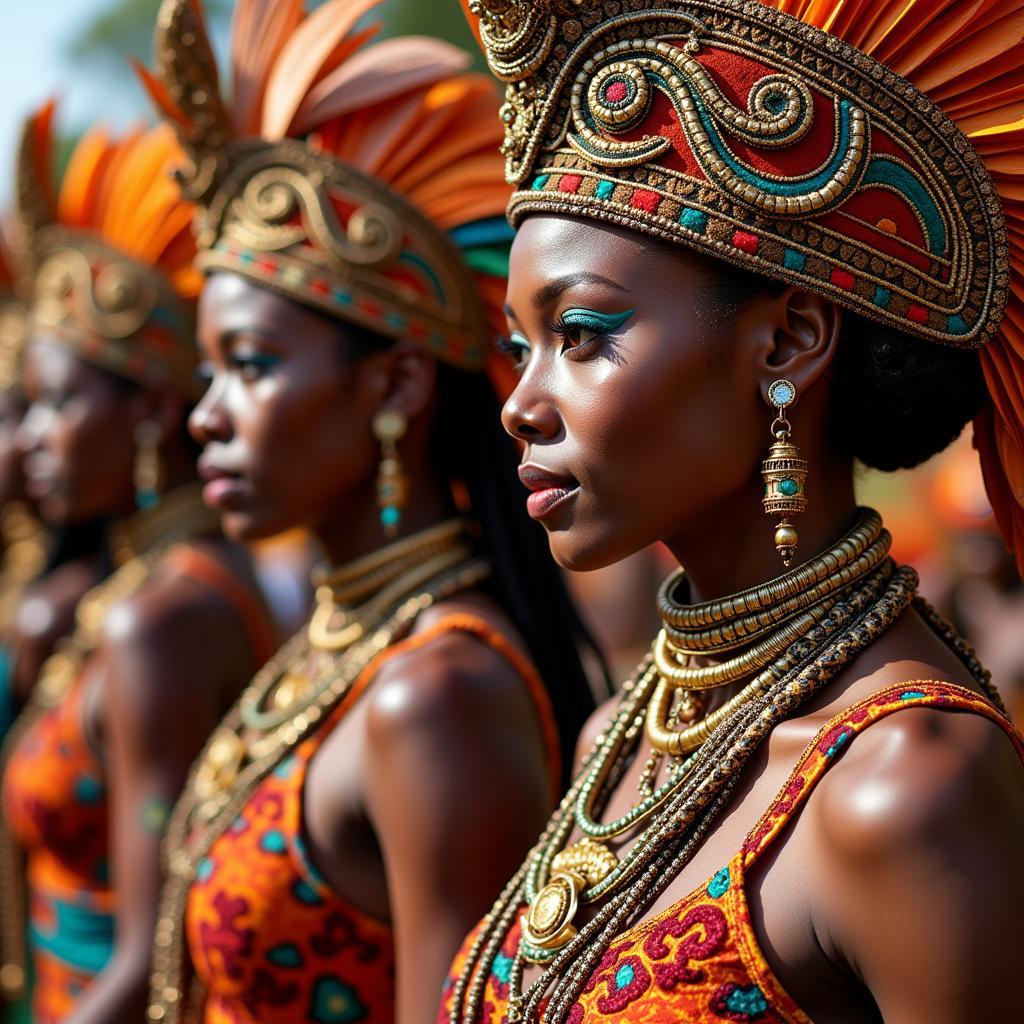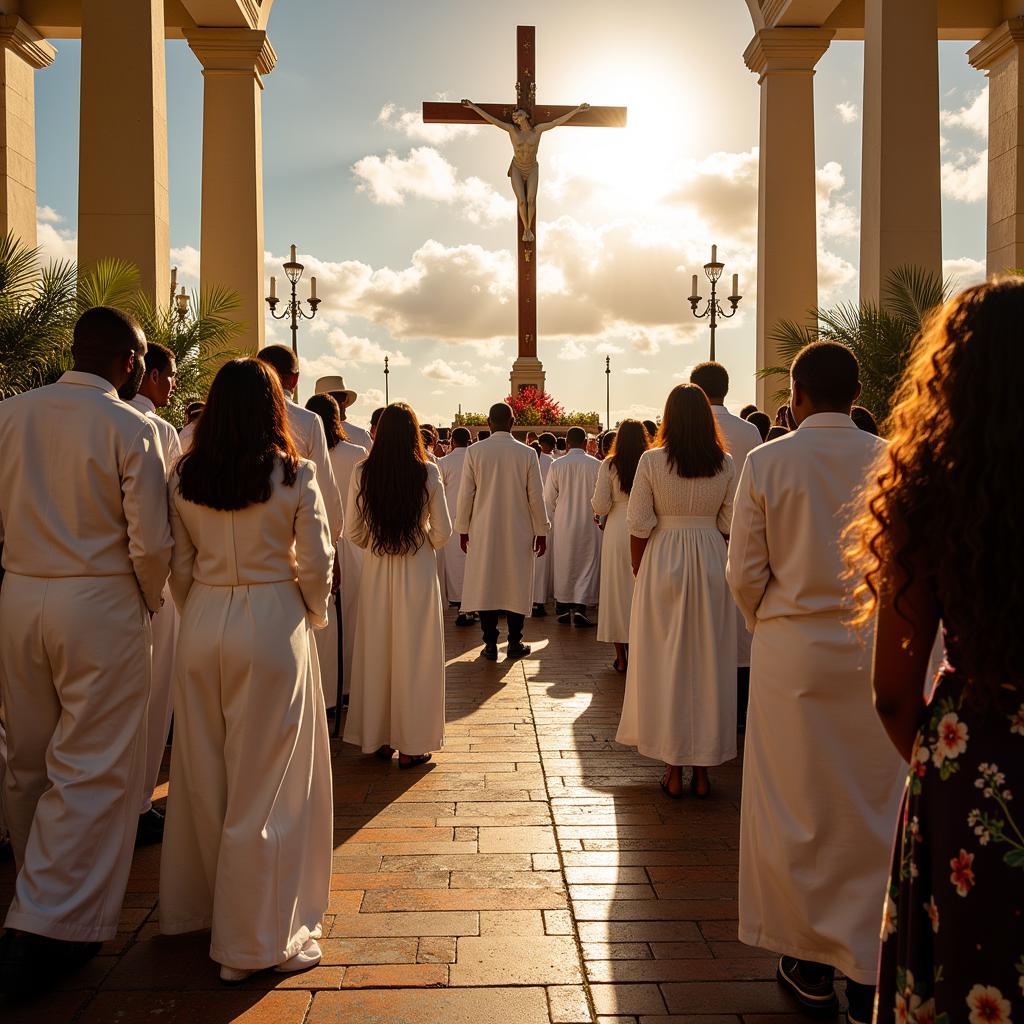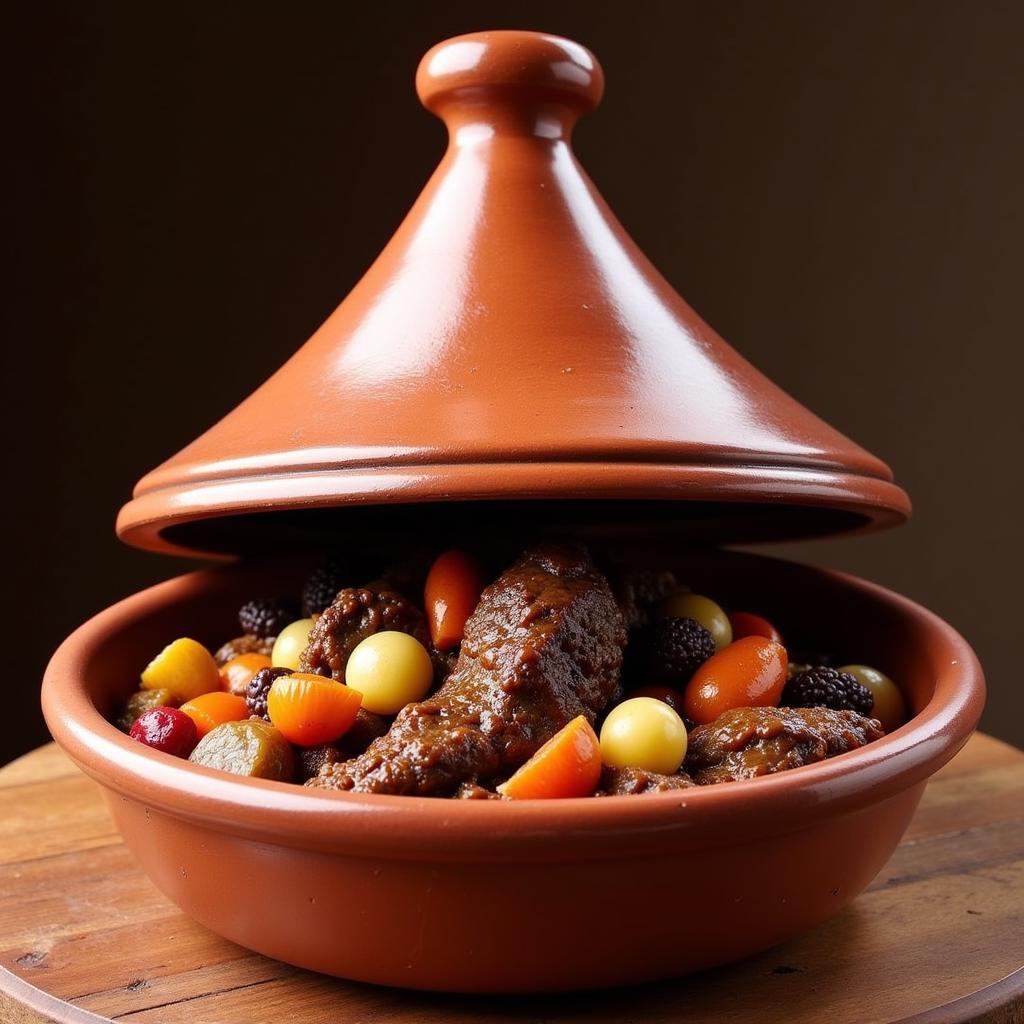The Enduring Presence: Exploring African Heritage in Latin America
The vibrancy of Latin American culture is undeniable, a captivating blend of indigenous traditions and global influences. Yet, woven deeply into this tapestry is a thread often overlooked: the profound impact of African Heritage In Latin America. From the rhythmic pulse of music and dance to the tantalizing flavors of cuisine, the legacy of Africa is palpable, offering a rich narrative of resilience, adaptation, and cultural fusion.
A Journey Across the Atlantic: The African Diaspora in Latin America
The transatlantic slave trade, a dark chapter in human history, tragically brought millions of Africans to the shores of Latin America. Spanning over three centuries, this forced migration resulted in a significant African presence in the region, shaping the demographic and cultural landscape. From Brazil and Cuba to Colombia and Peru, African communities emerged, their traditions intertwining with indigenous and European customs to forge new identities.
Echoes of the Motherland: Cultural Expressions of African Heritage
The influence of African heritage in Latin America reverberates most prominently in the realm of cultural expression. Music and dance, often described as the soul of a people, pulsate with African rhythms and movements.
- Music: Genres like samba in Brazil, salsa in Cuba, and cumbia in Colombia carry the unmistakable echoes of African musical traditions. The call-and-response patterns, polyrhythms, and use of percussion instruments like the drum speak to the enduring presence of African musical sensibilities.
- Dance: Similarly, dance forms like capoeira in Brazil, with its acrobatic movements and martial art origins, and the vibrant carnival celebrations across Latin America, often featuring elaborate costumes and rhythmic processions, showcase the undeniable influence of African dance traditions.
 Vibrant Carnival Costumes Reflecting African Heritage
Vibrant Carnival Costumes Reflecting African Heritage
Beyond Music and Dance: A Multifaceted Heritage
However, the impact of African heritage in Latin America extends far beyond music and dance, permeating various aspects of life.
Religion and Spirituality:
African religious practices, often blending indigenous beliefs with Christianity, found fertile ground in Latin America, giving rise to syncretic religions like Santeria in Cuba and Candomblé in Brazil. These faiths, often misunderstood, offer a fascinating glimpse into the resilience of African spirituality and its adaptation to new environments.
 Religious Ceremony Showcasing Syncretic Beliefs
Religious Ceremony Showcasing Syncretic Beliefs
Cuisine:
The culinary landscape of Latin America is another testament to the enduring presence of African influence on Latin America history. Staple foods like rice, beans, plantains, and yams, brought over from Africa, became integral parts of Latin American diets. Cooking techniques like frying and stewing, along with the use of spices and ingredients like okra and palm oil, further highlight the African imprint on the region’s gastronomy.
Language:
Even in language, traces of African heritage can be found. Words of African origin, often related to music, dance, food, and religious practices, have been incorporated into Spanish and Portuguese, the dominant languages of the region. This linguistic fusion underscores the deep intermingling of cultures.
Social Structures:
The legacy of slavery and colonialism continues to impact social structures in Latin America, with Afro-descendants often facing systemic inequalities. However, there is a growing movement to acknowledge and address these injustices, celebrating the contributions of Afro-Latinos and advocating for their rightful place in society.
Unveiling Hidden Histories: The Importance of Recognizing African Heritage
Recognizing and celebrating African heritage in Latin America is not merely an act of historical preservation; it is a crucial step towards understanding the complexities of Latin American identity.
- Challenging Eurocentric Narratives: For centuries, dominant narratives often marginalized or erased the contributions of African descendants. Acknowledging their heritage challenges these Eurocentric perspectives, offering a more inclusive and accurate historical understanding.
- Promoting Cultural Understanding: Recognizing the African influence fosters cross-cultural dialogue and appreciation, highlighting the interconnectedness of seemingly disparate cultures.
- Empowering Future Generations: By celebrating the achievements and resilience of Afro-Latinos, we inspire future generations to embrace their heritage and contribute to a more just and equitable society.
Conclusion: A Legacy Woven into the Fabric of Latin America
The African heritage in Latin America is not a separate entity but an inseparable thread woven into the very fabric of the region’s cultural tapestry. From the pulsating rhythms of its music to the rich flavors of its cuisine, the influence of Africa is undeniable. As we delve deeper into the history and cultural expressions of Latin America, we uncover a legacy of resilience, creativity, and cultural fusion, enriching our understanding of this vibrant region and its people.
FAQs: Unraveling the Complexities of African Heritage in Latin America
1. What were the main regions of Africa from which slaves were brought to Latin America?
The majority of enslaved Africans transported to Latin America originated from West and Central Africa, including regions like present-day Angola, Congo, Ghana, and Senegal.
2. How did African traditions survive and adapt in new environments?
Despite facing immense hardships, enslaved Africans clung to their traditions, adapting them to new contexts. Music, dance, and religious practices provided solace and a means of preserving cultural identity.
african influence on latin america history
3. What are some notable examples of Afro-Latino figures who have made significant contributions to their respective fields?
Throughout history, countless Afro-Latinos have made significant contributions to art, music, literature, politics, and activism.
african american struggle leaders
4. How can I learn more about the African heritage in specific Latin American countries?
Numerous resources are available to delve deeper into this rich history. Consider exploring academic journals, documentaries, and online platforms dedicated to Afro-Latino studies.
5. What are some ways to support the recognition and celebration of African heritage in Latin America?
Supporting Afro-Latino artists, businesses, and organizations actively involved in preserving and promoting their cultural heritage is a tangible way to contribute. Additionally, educating oneself and others about this history is crucial.
Need assistance in exploring the captivating world of African heritage in Latin America? Our dedicated team at African Life is here to provide guidance and support. Contact us at +255768904061, email us at [email protected], or visit our office in Mbarali DC Mawindi, Kangaga, Tanzania. We offer 24/7 customer support to cater to your needs.

